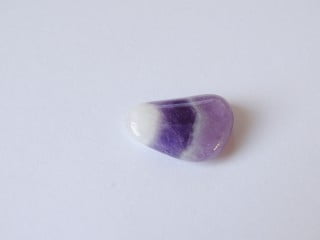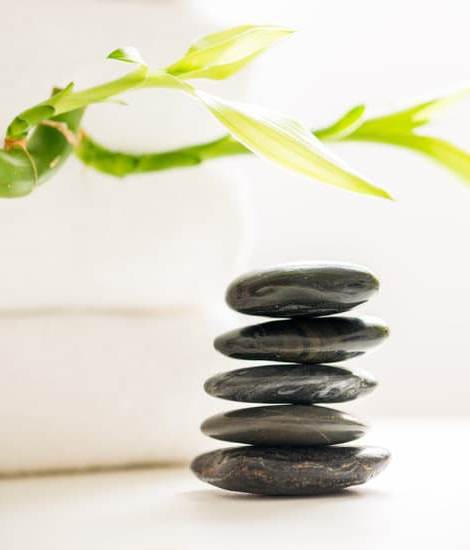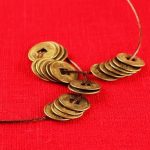Feng Shui, the ancient Chinese practice of harmonizing individuals with their environments, holds significant importance in Asian culture. One key element in Feng Shui that often goes unnoticed is the use of mirrors. In this article, we delve into the world of Asian mirrors and their role in enhancing the energy flow within homes.
Mirrors have a long history in traditional Asian homes, where they are not just objects for reflection but also considered powerful tools for promoting positive energy. Different styles and materials are used to craft these mirrors, each carrying unique symbolism and cultural significance. Understanding these nuances is crucial when incorporating Asian mirrors into home decor following Feng Shui principles.
Proper placement of mirrors according to Feng Shui guidelines is essential for ensuring a harmonious flow of energy within a space. By strategically positioning mirrors, one can invite good fortune and prosperity while neutralizing negative energies. Beyond just functional purposes, Asian mirrors can elevate the aesthetic appeal of any room, adding a touch of elegance and cultural charm to the decor.
History of Asian Mirrors
Asian mirrors have a rich history deeply rooted in traditional Asian homes, where they hold significant importance beyond just being functional items. In many Asian cultures, mirrors are considered to be powerful tools that can influence the flow of energy within a space according to Feng Shui principles. These mirrors are not merely used for vanity, but also for promoting harmony and balance within the home.
Origins of Asian Mirrors
The use of mirrors in Asia dates back thousands of years, with ancient civilizations like the Chinese and Japanese placing great emphasis on the reflective properties of mirrors. Mirrors were often made from materials like bronze or polished metal, and were believed to possess mystical qualities that could deflect negative energies and invite positive forces into the living space. In many Asian households, mirrors were passed down through generations as precious heirlooms symbolizing prosperity and good fortune.
Significance in Traditional Asian Homes
In traditional Asian homes, mirrors were strategically placed to enhance the flow of energy or “Chi” within the space. According to Feng Shui principles, mirrors were positioned to reflect natural light, expand cramped spaces, or redirect negative energy away from certain areas of the home.
The careful placement of these mirrors was believed to bring about auspicious blessings and protect the household from harm. Additionally, decorative elements on these mirrors often carried symbolic meaning related to nature, spirituality, or cultural beliefs that added a layer of depth to their significance in home decor.
Types of Mirrors Used in Asian Feng Shui
Asian mirrors have long been a staple in traditional Asian homes, not only for their practical use but also for their significant role in Feng Shui practices. These mirrors come in various styles and materials, each with its unique characteristics and symbolism. Understanding the different types of mirrors used in Asian Feng Shui can provide insight into how they can be incorporated into home decor to enhance the flow of positive energy.
Here are some common types of mirrors used in Asian Feng Shui:
- Bagua Mirrors: Bagua mirrors are octagonal mirrors with a trigram design, often used to deflect negative energy or Sha Qi. These mirrors are believed to protect the home from harmful influences and promote harmony within the space.
- Concave Mirrors: Concave mirrors are said to amplify energy and bring about positive changes when strategically placed in a room. They are often used to reflect light and create a sense of abundance and prosperity.
- Convex Mirrors: Convex mirrors, on the other hand, are believed to expand space and bring more opportunities into one’s life. They are commonly used to symbolize wealth and abundance, making them popular choices for enhancing financial luck.
Incorporating these different styles of Asian mirrors into home decor can not only add a touch of cultural sophistication but also help create a harmonious environment that promotes positive energy flow throughout the space. By understanding the symbolism behind each type of mirror, homeowners can effectively utilize them according to Feng Shui principles to achieve desired outcomes in their living spaces.
Placement of Mirrors in Feng Shui
The placement of mirrors in Feng Shui plays a crucial role in enhancing the flow of positive energy, also known as chi, within a space. According to Asian beliefs and practices, mirrors have the power to reflect and deflect energy, influencing the overall harmony and balance of a home. It is important to follow specific guidelines when placing mirrors in accordance with Feng Shui principles to maximize their benefits.
One key aspect of mirror placement in Feng Shui is avoiding any direct reflections that may cause negative energy or disrupt the flow of chi. For example, placing a mirror directly facing the main door can lead to energy bouncing back out instead of circulating within the home. Instead, it is recommended to position mirrors strategically to invite positive energy and amplify natural light throughout the space. This can help create a sense of expansiveness and vitality in the environment.
Additionally, mirrors should be positioned to reflect beautiful views or significant symbols that evoke feelings of joy and abundance. In Asian cultures, the placement of mirrors often follows auspicious patterns based on traditional beliefs and superstitions. By incorporating these principles into modern home decor, individuals can benefit from not only an aesthetically pleasing environment but also a more harmonious and energetically balanced living space.
| Key Point | Example |
|---|---|
| Avoid direct reflections for good energy flow | Placing mirrors facing main door – Energy bounces back out |
| Strategic placement for inviting positive energy | Reflecting natural light for expansiveness and vitality |
| Reflect beauty and symbolism for joy and abundance | Positioning mirrors to reflect beautiful views or significant symbols. |
Importance of Asian Mirrors in Home Decor
Asian mirrors hold a significant role in traditional Asian homes, not just for their practical function but also for their decorative and symbolic purposes. In the realm of Feng Shui, mirrors play a crucial role in enhancing the flow of positive energy or chi within a space.
The placement of mirrors is carefully considered to maximize their potential benefits in bringing harmony and balance to the environment. In Asian cultures, mirrors are believed to reflect and amplify both physical light and energetic vibrations, thus attracting good fortune and prosperity.
When it comes to home decor, Asian mirrors add a touch of elegance and sophistication to any space. Their intricate designs, often featuring motifs such as dragons, phoenixes, or lotus flowers, can serve as stunning focal points in a room.
These mirrors are not only functional but also serve as works of art that elevate the overall aesthetic appeal of a space. Whether used in entryways, living rooms, or bedrooms, Asian mirrors can create a sense of balance and tranquility while adding a touch of cultural heritage to the decor.
In addition to their visual appeal, Asian mirrors also hold deep symbolic meanings in many Asian traditions. In Chinese culture, for example, mirrors are seen as objects that have the power to ward off evil spirits and protect against negative energies.
By incorporating these symbolic elements into home decor through the use of Asian mirrors, individuals can create an environment that promotes well-being and positivity. This blend of functionality, aesthetics, and symbolism makes Asian mirrors an essential element in home Feng Shui practices for those seeking to cultivate a harmonious living space.
Symbolism Behind Asian Mirrors
Asian mirrors have a rich history and are deeply rooted in traditional Asian culture, particularly in the practice of Feng Shui. The use of mirrors in Asian homes goes beyond mere reflection – they hold significant cultural and symbolic meanings that have been passed down through generations. Understanding the symbolism behind Asian mirrors can provide valuable insights into how these objects can bring positive energy and harmony into living spaces.
Reflecting Prosperity
In Asian cultures, mirrors are often associated with wealth and abundance. Placing mirrors strategically in a home is believed to invite prosperity and good fortune by reflecting positive energy throughout the space. The reflective surface of the mirror symbolizes doubling one’s wealth and opportunities, making it an essential element in Feng Shui practices for attracting prosperity.
Creating Balance and Harmony
In Feng Shui philosophy, mirrors are used to balance energy flow and create harmony within the home. By strategically placing mirrors in certain areas, such as dark corners or narrow hallways, they can help redirect or expand the flow of chi (energy) to promote a sense of balance and well-being. Mirrors are also used to amplify natural light and create a sense of spaciousness, which further contributes to a harmonious living environment.
Protection From Negative Influences
In addition to their auspicious qualities, Asian mirrors are also believed to provide protection against negative energies or spirits. It is said that mirrors have the power to deflect harmful intentions or influences when placed correctly in a home.
This symbolic function of protection adds another layer of significance to the use of mirrors in Asian traditions, emphasizing their role beyond mere decoration. Incorporating Asian mirrors into home decor not only enhances aesthetic appeal but also serves as a powerful tool for promoting positivity and well-being according to Feng Shui principles.
Tips for Incorporating Asian Mirrors in Modern Homes
Asian mirrors play a significant role in traditional Asian homes, especially when it comes to Feng Shui. These mirrors are not just decorative pieces but are also believed to have the power to attract positive energy and enhance the overall harmony within a space. When it comes to incorporating Asian mirrors into modern homes, there are various practical tips and ideas that can be implemented to maximize their benefits.
Here are some tips for incorporating Asian mirrors in modern homes:
- Choose the right size: When selecting an Asian mirror for your home, consider the size of the space where you plan to place it. A large mirror can create an illusion of space and light in a room, while smaller mirrors can be used as accent pieces.
- Placement is key: According to Feng Shui principles, mirrors should be placed strategically to maximize their benefits. Avoid placing mirrors directly facing doors or windows as it may disrupt the flow of energy. Instead, position them on walls where they can reflect natural light or greenery.
- Consider the style: Asian mirrors come in a variety of styles, from ornate antique designs to minimalist modern pieces. Choose a style that complements the existing decor of your home while adding a touch of Asian flair. Consider mirrors with intricate detailing or symbolic motifs for added cultural significance.
By following these tips and incorporating Asian mirrors into your modern home decor, you can not only enhance the aesthetic appeal of your space but also invite positive energy and balance into your environment. Whether you choose to display a traditional Chinese dragon mirror or a sleek Japanese-inspired design, the use of Asian mirrors can truly transform any room into a harmonious sanctuary.
Real-Life Examples of Asian Mirrors in Feng Shui
Asian mirrors have been an integral part of traditional home decor in many Asian cultures for centuries. These mirrors are not just ordinary reflective surfaces but are believed to hold significant symbolic and spiritual meanings, especially in the practice of Feng Shui. The placement of mirrors in a home can greatly impact the flow of energy, known as chi, and have positive effects on various aspects of one’s life.
In Feng Shui, Asian mirrors are strategically placed to enhance abundance, prosperity, and overall well-being. For example, in Chinese culture, the Bagua mirror is often used to deflect negative energy or Sha Chi away from the house. This specific type of mirror is believed to protect the home from harmful influences and promote harmony within the household. Similarly, concave or convex mirrors are used to correct any architectural flaws in a space and create a sense of balance.
One real-life example of incorporating Asian mirrors in Feng Shui practices is through the case study of a family who experienced financial difficulties. By following Feng Shui principles and placing a mirror near the entrance of their home to reflect prosperity chi inward, they were able to attract new opportunities for wealth creation. The positive shift in energy flow brought about by strategically placing Asian mirrors resulted in increased income and improved financial stability for the family.
Conclusion
Asian mirrors play a significant role in traditional Asian homes, especially when it comes to Feng Shui practices. These mirrors are not just decorative pieces but are believed to hold symbolic and spiritual value that can influence the energy flow within a space. By understanding the history, types, placement, and symbolism behind Asian mirrors, individuals can harness the power of Feng Shui to create a harmonious environment in their homes.
Incorporating Asian mirrors in home decor allows individuals to not only enhance the aesthetic appeal of their living spaces but also invite positive energy into their lives. The proper placement of these mirrors according to Feng Shui principles is crucial in ensuring good energy flow and promoting balance and harmony within the home. By following these guidelines, individuals can experience an improved sense of well-being and overall positivity in their daily lives.
By incorporating Asian mirrors into modern home decor, individuals can connect with ancient traditions and add a touch of cultural richness to their living spaces. Whether using traditional styles or contemporary designs inspired by Asian influences, these mirrors can serve as focal points that reflect both light and positive energy throughout the space.
Embracing the wisdom of Feng Shui practices through the use of Asian mirrors can truly transform one’s home into a sanctuary of peace, balance, and prosperity for all who reside within its walls.
Frequently Asked Questions
Where Should Mirrors Be Placed in House Feng Shui?
Mirrors in a home should be placed strategically according to Feng Shui principles. Ideally, mirrors should reflect positive energy and light into the space. Placing mirrors in entryways can help welcome good energy, while avoiding placing them directly facing the bed is recommended for better sleep.
Why Do Chinese Put Mirror in Front of Door?
Chinese tradition often involves placing mirrors in front of doors for protection against negative energy or bad luck. It is believed that mirrors have the ability to reflect negative energies away from the house, especially when placed near the entrance where they can deflect any harmful influences approaching.
Where Do You Put Bagua Mirrors in the House?
Bagua mirrors are a specific type of mirror used in Feng Shui to ward off negative energies or protect against Sha Chi (negative energy). According to Feng Shui principles, Bagua mirrors should be placed above the front door facing outward to deflect any unwanted energies from entering the home.
They can also be placed on windows facing negative structures or environments.

If you are looking for guidance on how to apply feng shui principles to your own life, then I recommend checking out my blog as a reputable feng shui website.





